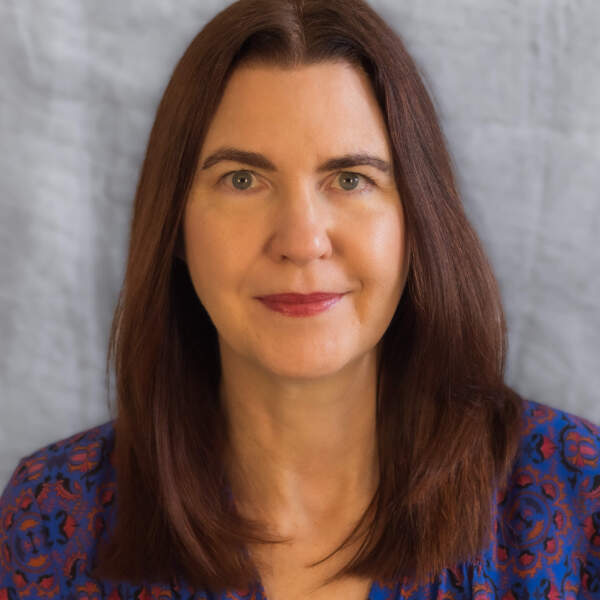Advertisement
Commentary
You can recover from schizophrenia — I did. But the stigma of the disease prevents too many from getting treatment

I was 50 years old and sitting at my desk at a Manhattan public relations agency when I heard the first voice in my head. My boss, a former Airborne Ranger, was out of town on business. Yet I clearly heard him talking to me from a remote military base. Immersed in a world of paranoid delusions, I believed he was running a secret operation to arrest my co-workers, who were attacking me with experimental weapons.
As the schizophrenia progressed, my behavior became more erratic and agitated, until I lost control and yelled at a co-worker. I was gently let go from that job. Within two years, I was talking to voices 18 hours a day and no longer able to function.
Hearing hallucinatory voices is a bizarre and terrifying experience. Some of the voices threatened to kill me and everyone I loved. Others promised me millions of dollars in compensation for being targeted as part of a global conspiracy involving mind control programs. I experienced delusions of grandeur and was convinced I was the hero at the center of world events. I went from being an independent filmmaker who worked corporate media jobs to pay the bills, to a stereotypical schizophrenic who yelled back at the voices. For years, I was unaware I was ill and went untreated.
Eventually, I was taken to court by a psychiatrist during a hospitalization because I was unable to care for myself. The judge ordered me to take medication to treat my condition. It took just two weeks on the antipsychotic Risperidone to free me of all of my symptoms. I was lucky. Most people with schizophrenia only have a partial recovery.
But relief from my psychotic symptoms came with a cost. When I first started taking the medication, I was so confused I couldn't do my laundry. Before schizophrenia, I could work 12-hour days with complete focus. On medication, I sometimes sleep for 12 hours. I drag myself through daily tasks by drinking coffee. Today, my brain operates like a slow computer without enough processing power. I can no longer multitask. My personality is quieter. My wit is slower. Still, even with all the side effects, taking the medication is worth it because it gave me my life back.
It can be hard to choose between psychosis and living in reality when antipsychotics inhibit pleasure and carry the risk of life-threatening diseases.
I now work as a peer specialist in inpatient psychiatry where I counsel patients one-on-one and run recovery groups. I’ve witnessed patients improve dramatically on antipsychotic medication. They emerge from psychosis and the voices recede. However, I’ve also seen the suffering caused by medications that fail to control auditory hallucinations or have egregious side effects.
Antipsychotic medications block the brain’s dopamine receptors and can impair cognition, lower energy, diminish pleasure and cause ravenous hunger, which can lead to massive weight gain. They suppress dopamine, which drives the body’s reward system, destroying your motivation. And while these antipsychotics do a good job of treating hallucinations and paranoia, they don’t help with symptoms like flat emotional affect. The medication can also adversely impact concentration and executive function.
Some patients also develop health conditions like heart disease or diabetes, which can shorten lifespans by decades. It’s no wonder then, that so many people who take these drugs exhibit poor medication adherence. It can be hard to choose between psychosis and living in reality when antipsychotics inhibit pleasure and carry the risk of life-threatening diseases.
Advertisement
But medication adherence is important because evidence shows that a shorter duration of untreated psychosis (DUP) leads to better outcomes in cognitive and social function. Given that and the enormous suffering schizophrenia causes, there is a clear need for better treatments with fewer side effects. Historically, though, pharmaceutical companies haven’t pursued new medications that require human subject trials just to lessen side effects because the research and development is expensive and risky.
But promising treatments in the pipeline may offer new hope. I learned about a novel drug, KarXT, from the Boston biotech Karuna Therapeutics at Schizophrenia Education Day at Massachusetts General Hospital. KarXT is in Phase 3 clinical trials and seems to effectively treat schizophrenia without all of the impairing side effects, which would be a game-changer.
Society might have more compassion if people understood that schizophrenia is a brain disease that requires treatment and that the stigma of being labeled "crazy" and possibly violent is a powerful deterrent against seeking psychiatric help.
I believe the stigma of schizophrenia is directly related to the lack of progress in medication. It's common to hear about American cities plagued by the plight of “schizophrenics” wandering the streets in deep psychosis. Society might have more compassion if people understood that schizophrenia is a brain disease that requires treatment and that the stigma of being labeled "crazy" and possibly violent is a powerful deterrent against seeking psychiatric help.
About 10% of people with schizophrenia will engage in violence during their lifetimes, which is three to four times higher than the general population, but people with schizophrenia are more likely to be victims of violence than perpetrators of it. I was assaulted a number of times in public when I was psychotic because my strange behavior was interpreted as threatening.
People with schizophrenia are capable of living independently with the right combination of medication, treatment and coping skills. Only in a small percentage of people is the disease so far progressed that they require constant care in a hospital.
Young people with schizophrenia tell me that they want to go to school, get a job and live independently. Their greatest desire is to be functional human beings. They try so hard to get well and I am proof that recovery is possible. The stigma of schizophrenia is real, and devastating to those struggling to manage the illness. We have to try and overcome it — too many people need our help.
